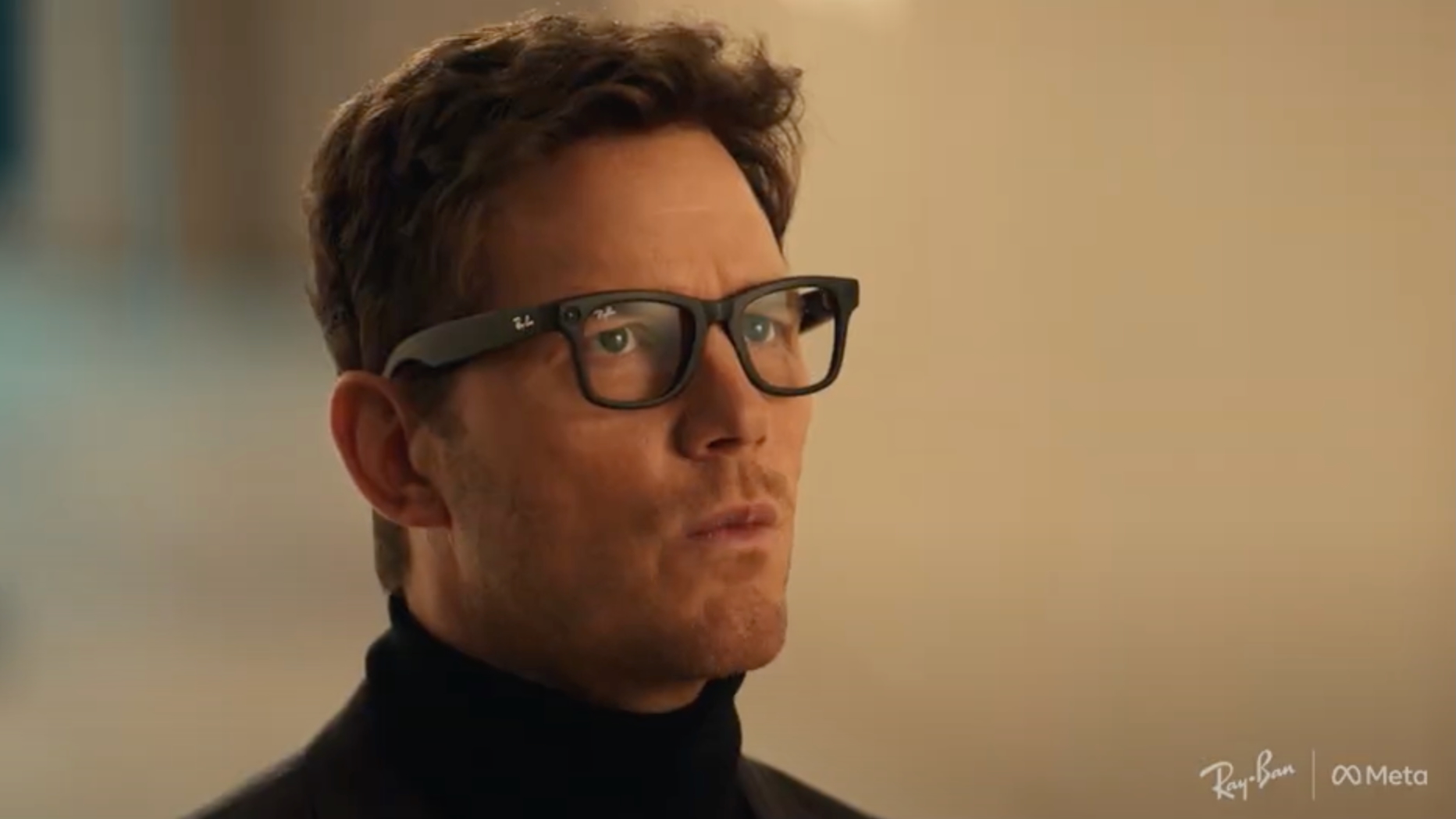ChatGPT and Google won battle for best tech Super Bowl ads — and Meta lost
Meta paid three Chrises to mock art in a confusing Ray-Ban Meta commercial, while ChatGPT dazzled and Gemini tugged heartstrings.

Super Bowl ads usually have two flavors: sentimental, sappy messages about love and acceptance or corny, celebrity-filled comedy routines that stick in your memory. Google took the first route to great effect, while Meta flopped hard with the second approach. And it was ChatGPT's Super Bowl commercial that really stood out amid the usual fare.
Having reviewed the Ray-Ban Meta smart glasses — and as a casual fan of Thor and Star-Lord — I was looking forward to some goofy himbos learning about the world through Meta AI and looking stylish doing it.
Instead, both ad spots fixated on mocking modern art for laughs — which feels a bit mean-spirited when you think about AI stealing art and putting artists out of work — and, more importantly, didn't make it clear to non-tech people what the glasses actually do that's helpful in their daily lives.

The Super Bowl ad banked too much on star power and not enough on the inherent need people have to learn more about the world around them. I'd have put the glasses on an inquisitive child actor instead, with a parent relieved that someone else is answering "What's this?" over and over.
It's not like Meta isn't already doing a good job getting these on people's faces. Meta sold one million AI glasses last year and will start selling Oakleys next with the same Meta AI smarts, so this ad seemed like it could jumpstart the journey towards "hundreds of millions" of smart glasses that Mark Zuckerberg wants. But I don't know if anyone watching the ad would have seen a compelling reason to buy the Ray-Bans.
Meanwhile, Google's Pixel 9 with Gemini Live Super Bowl commercial didn't focus that much on the tech specifics either, but it worked more effectively because of the underlying heart behind it. Where so many other commercials tapped into the political landscape and discussed hate and loving your neighbor, Google focused on familial love and believing in yourself, with some subtle AI thrown in there.
The commercial starts with a man practicing for a job interview before reminiscing about his life as a father, with Gemini Live helpfully prompting certain memories and rephrasing statements to make him sound confident and qualified.
Be an expert in 5 minutes
Get the latest news from Android Central, your trusted companion in the world of Android
Google's other Super Bowl ads may have inspired controversy, but this one tugs at the heartstrings whether you're a parent or a child of loving parents, and it's bookended by the focus on the Pixel 9 and the simple idea that you can have a meaningful and professionally helpful conversation with your phone. Whether the reality lives up to the ad or not, it was effective!
The ChatGPT ad pleasantly stood out in a sea of forced sentimentality and hammy joke cameos. Even for folks who know little about AI, the message is straightforward: this technology is about to explode. It's built to help people with a variety of tasks, and AI is a canvas that lets anyone be creative and give life to ideas they couldn't generate solely on their own.
Plus, you can't deny that the visuals looked very cool — a combination of retro and futuristic. When every commercial has a Matthew McConaughey — whose Salesforce Super Bowl commercial was extremely vague about what AI actually does — the ChatGPT pitch to the world stood out more than the rest.
I also counted a few app and website commercials with celeb or comedian cameos like DoorDash (Nate Bargatze), Homes.com (Morgan Freeman), Squarespace (Barry Keoghan), and TurboTax (Issa Rae) that were all cute and harmless enough, but not necessarily standing out from the pack.
Then there was the T-Mobile/Starlink ad for the "only space-based network" that'll target 500,000 square miles of U.S. dead zones, with free coverage for T-Mobile, Verizon, and AT&T customers through July.
This partnership has been in the works since 2022, with the beta launching last month. Frankly, this commercial was very straightforward; it didn't have much of a "wow" factor, or a pithy "Can you hear me now?" tagline. I doubt it stuck in very many people's minds, amidst the Chiefs' epic Super Bowl flop and the Eagles' heroics. And that's a shame, because it's certainly a cool promotion.
Our country's collective obsession with Super Bowl commercials aside, I find it interesting to see how different companies are trying to shove AI and smart glasses into the collective consciousness, with varying levels of success.
We've thankfully moved on from the crypto ads that dominated Super Bowl ads in previous years. AI seems more likely to stick around in adverts for years to come, as different brands all strive to beat DeepSeek and convince you that their AI is the smartest and most helpful.
Don't be surprised if the biggest tech brands continue to focus on AI at the next Super Bowl. The challenge will be figuring out how to advertise their AIs getting smarter when these ads already make them sound like they have limitless potential.

Michael is Android Central's resident expert on wearables and fitness. Before joining Android Central, he freelanced for years at Techradar, Wareable, Windows Central, and Digital Trends. Channeling his love of running, he established himself as an expert on fitness watches, testing and reviewing models from Garmin, Fitbit, Samsung, Apple, COROS, Polar, Amazfit, Suunto, and more.
You must confirm your public display name before commenting
Please logout and then login again, you will then be prompted to enter your display name.



